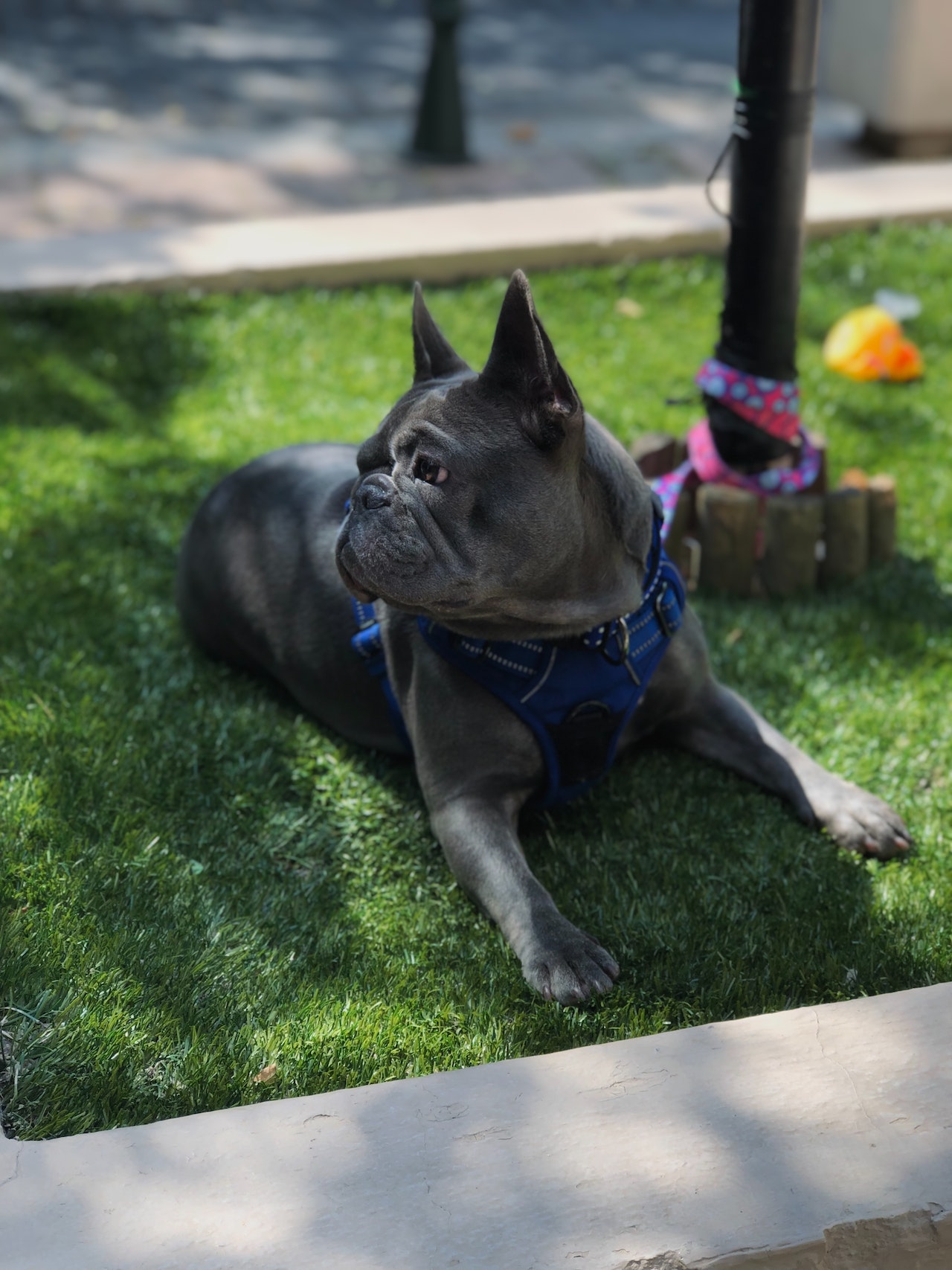French bulldog dry nose should not always be a reason for concern. However, if such a symptom persists for a long time, it is still necessary to discover what could be the cause of such a symptom. The reasons for dry noses in dogs are many. From dehydration, to dry air and sunburns, to even some more serious ones such as allergies, and certain autoimmune disorders. To help you deal with this issue, we decided to provide you with essential tips.

Why is My French Bulldog’s Nose Wet?
As a dog owner, you’ve probably felt the sensation of your furry friend’s cold, wet nose nudging against your skin. And if you have a puppy, you’re also familiar with wiping away endless nose prints from every glass surface in your home. But have you ever thought about the fact why your French bulldog’s nose is always moist?
The moisture on a dog’s nose is the result of a combination of saliva and mucus. A Frenchie’s nose naturally produces a thin layer of mucus, which is then supplemented by additional mucus and saliva as it frequently licks it.
While the details may seem a little peculiar, a wet nose actually serves several important functions for dogs. Firstly, maintaining a moist nose helps dogs regulate their body temperature. Unlike humans, who have sweat glands all over their bodies, dogs rely on sweat glands in their noses and paw pads to regulate their internal temperature.
The moisture in Frenchie’s nose also helps them release excess heat, which can help to cool their body down.
In addition to temperature regulation, a wet nose is essential to a dog’s incredible sense of smell. When a dog inhales, tiny odor particles in the air become trapped in the mucus lining of their nose. This allows dogs to analyze and interpret scents in greater detail than humans can.
Licking their nose is another way dogs can enhance their sense of smell. By licking the nose, a dog’s tongue can pick up odor particles trapped in the mucus lining of their nose, and transfer them to the olfactory gland, also known as Jacobson’s organ, located in the upper part of their mouth. This provides an even more nuanced analysis of the chemical compounds that make up scents.
It’s clear that a dog’s sense of smell is far superior to humans, and the moisture in their nose is thought to play a key role in this ability.

Why Is My French Bulldog Nose Dry?
Don’t worry too much if your French bulldog has a dry nose – it’s not always a cause for concern. While a wet nose is more typical for dogs, a dry nose doesn’t necessarily mean that your pup is sick. In fact, it’s perfectly normal for dogs to have dry noses, just like it’s normal for them to have wet ones.
There are several reasons why a dog’s nose may be dry from time to time. For example, if your dog has been sleeping for a while, they might not have licked their nose in hours, causing it to be less moist. Additionally, if they’ve been sleeping in a warm room with low humidity, their nose may be drier than usual. If this is the case, it’s best to wait and see if their nose becomes moist again as the day goes on before heading to the vet.
Certain breeds of dogs, such as French Bulldogs and Pugs, tend to have naturally drier noses. This is because they have shorter snouts, which makes it harder for them to lick their noses.
Finally, older dogs may also have drier noses as they produce less mucus. While this may be a bit of a change from their puppy days, it’s generally nothing to worry about.
When to worry about your French bulldog’s dry nose?
As a pet owner, you don’t need to panic just because your French bulldog’s nose is dry, but there are other nose conditions that should raise concern and prompt a visit to the vet. If you notice any changes in the color of the nose, bleeding, cracking, flaking, lumps, or bumps around the snout or face, these should be alarming signs. If your Frenchie is bleeding from the nose, it’s important to take them to the vet, especially if it happens frequently.
Moreover, if your pooch not only has a dry nose but also appears sick or exhibits unusual behavior, it could be a sign of a more serious problem that needs to be addressed by a veterinarian.
However, if your pooch wakes up with a dry nose one day, but otherwise seems normal and healthy, there’s no need to drop everything and rush to the vet.
While a wet nose is an indication of a dog’s good general health, a dry nose is not caused for alarm. Don’t fret over your Frenchie’s nose being dry unless there are other indicators that something is amiss.

My Frenchie Nose is Dry: Healing Process
After your vet determined your dog doesn’t need special treatment, you can perform some of the following steps. Make sure your furry friend stays hydrated by providing them with fresh and clean water all the time. You can also add a bit of water or wet food to their meals for extra moisture.
A humidifier can do wonders for your dog’s nose! It adds moisture to the air and helps keep their nose moist. Just place it in the room where your pup spends most of their time. To soothe and moisturize your French bulldog’s dry nose, try applying some dog-specific nose balm. A little bit of balm a few times a day can go a long way.
Coconut oil is also a great natural moisturizer for dry Frenchie noses. Apply a small amount a few times a day to give your pooch some relief.
A French bulldog nose moisturizer will leave many beneficial effects on your Frenchie’s sensitive paw pads and nose.
If allergies in your Frenchie are causing dryness, it’s best to talk with your veterinarian about possible treatment options.
It’s always a good idea to keep an eye out for any other symptoms like lethargy, loss of appetite, or coughing. If your French bulldog’s dry nose persists, talk to your veterinarian to rule out any underlying medical conditions.
Remember, before trying any new treatments, it’s important to check with your veterinarian first, especially if your pup’s dry nose is persistent or severe.

